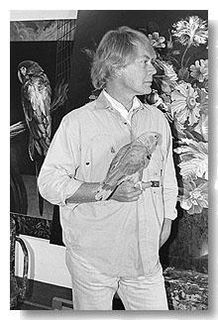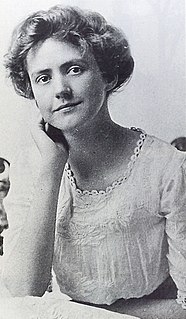A Quote by Ludwig Wittgenstein
Schiller writes in a letter [to Goethe, 17 December 1795] of a 'poetic mood'. I think I know what he means, I think I am familiar with it myself. It is the mood of receptivity to nature and one in which one's thoughts seem as vivid as nature itself.
Related Quotes
I don't always know what's going to go on in terms of the mood of the story. Sometimes I start with the mood, but sometimes I just try to work toward discovering it. But I do think often there's a mood or unsettling quality, in which the reality of the world seems to be taken away, that I really love, and it's something that I almost always unconsciously move toward.
My idea of a perfect surrealist painting is one in which every detail is perfectly realistic, yet filled with a surrealistic, dreamlike mood. And the viewer himself can't understand why that mood exists, because there are no dripping watches or grotesque shapes as reference points. That is what I'm after: that mood which is apart from everyday life, the type of mood that one experiences at very special moments.
My mood has changed now. And the sun has gone behind the clouds. I'm in this mood I feel occasionally... this mood where there's a very good friend nearby who I should be phoning. If only I could reach that friend and talk, then everything would be just fine. The dilemma is, of course, I just don't know who that friend is. But in my heart I know my mood is merely me feeling disconnected from my true inner self.
The adoption of the required attitude of mind towards ideas that seem to emerge "of their own free will" and the abandonment of the critical function that is normally in operation against them seem to be hard of achievement for some people. The "involuntary thoughts" are liable to release a most violent resistance, which seeks to prevent their emergence. If we may trust that great poet and philosopher Friedrich Schiller, however, poetic creation must demand an exactly similar attitude.
Nature is man's inorganic body -- that is to say, nature insofar as it is not the human body. Man lives from nature -- i.e., nature is his body -- and he must maintain a continuing dialogue with it is he is not to die. To say that man's physical and mental life is linked to nature simply means that nature is linked to itself, for man is a part of nature.









































